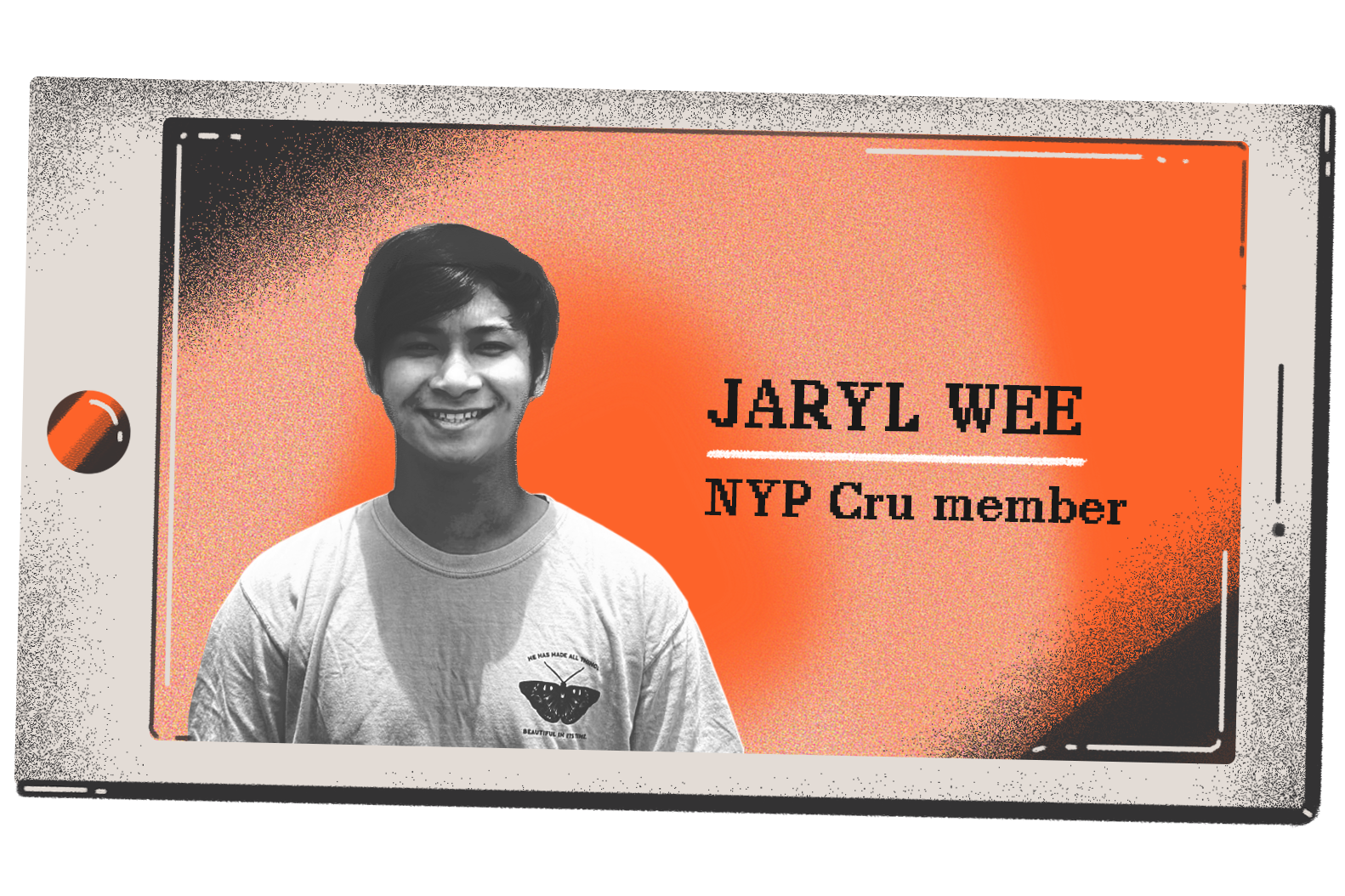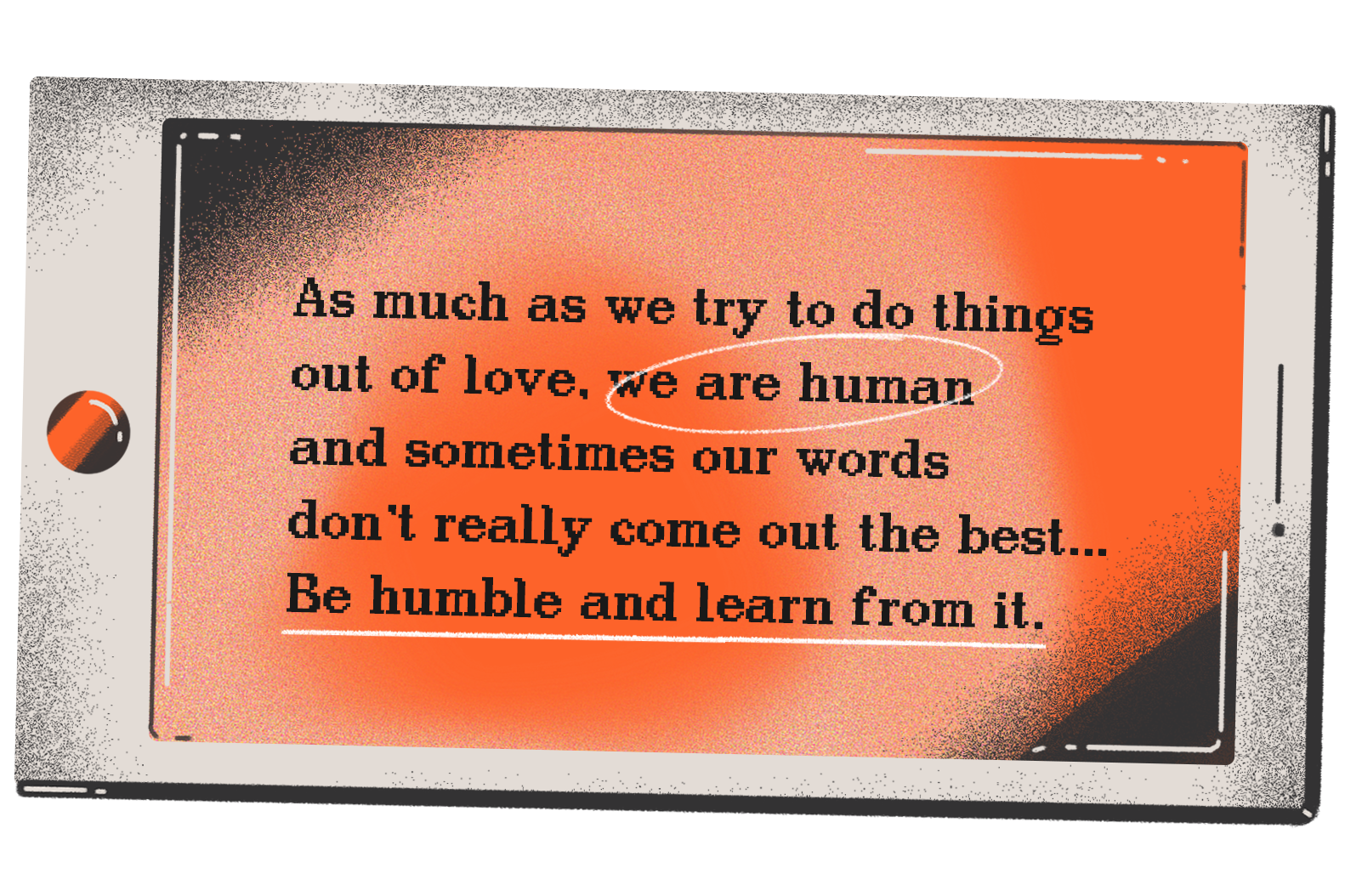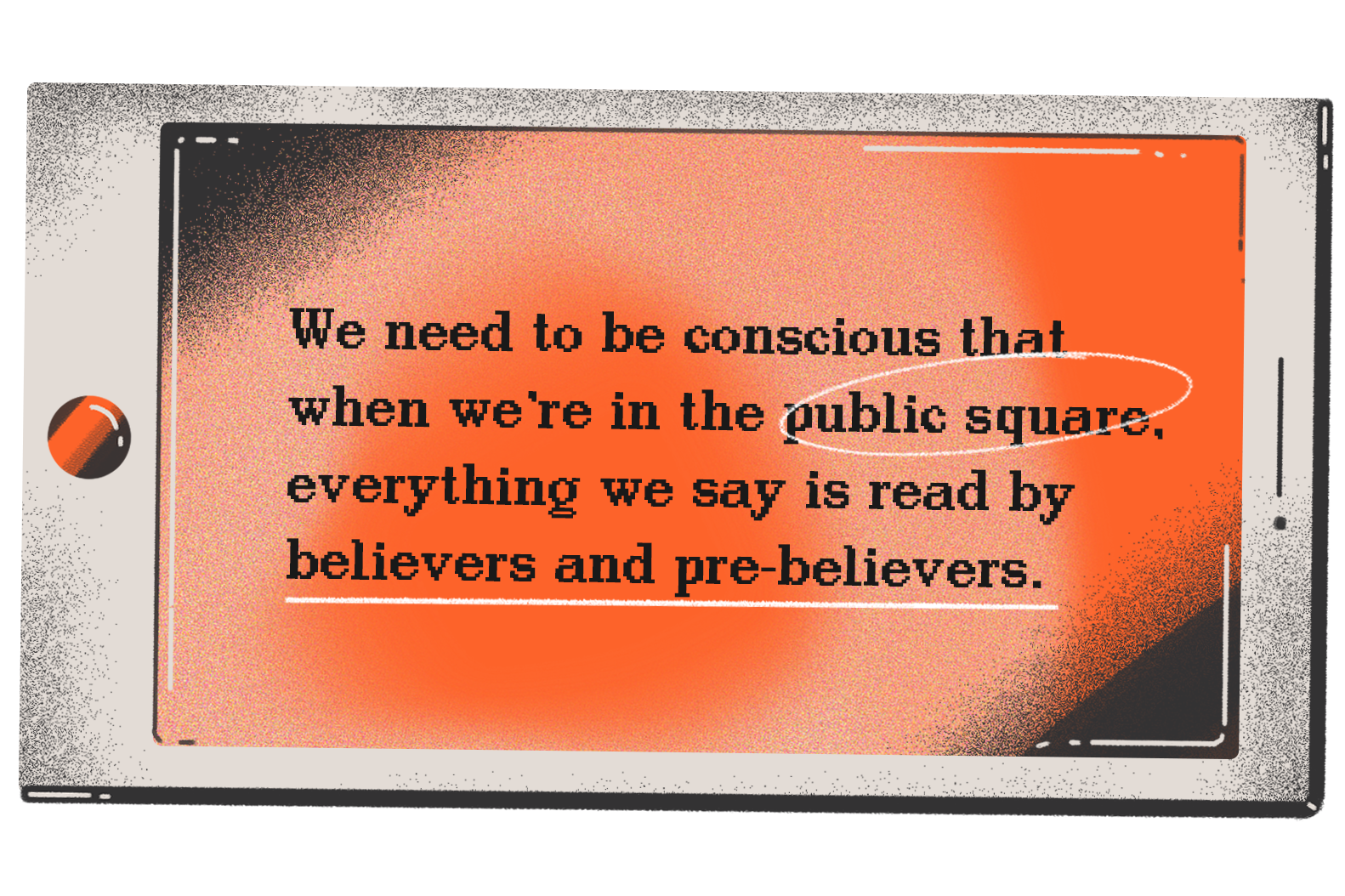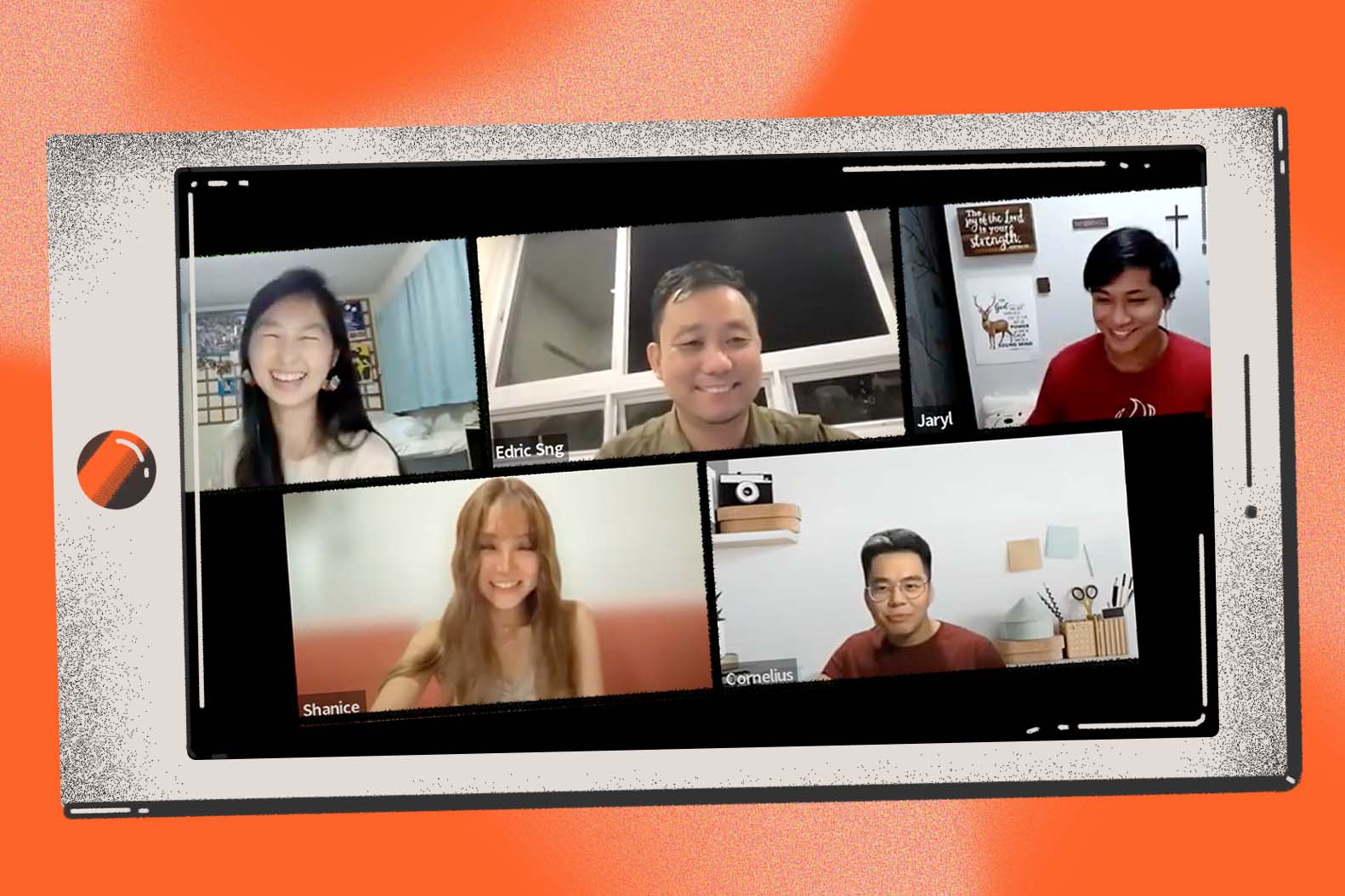Earlier this month, we held our very first Zoom webinar in line with Thir.st’s #PublishPeace campaign and Cru Singapore’s #READY equipping series.
Titled How would Jesus use social media?, the session began with world-renowned apologist Sean McDowell speaking about his approach to social media, followed by a lively discussion with local young adults who are passionate about evangelism.
Hosted and facilitated by Cru’s SMU Campus Mentor Choo Li Min, the 4 panellists shared personal experiences and practical tips, as well as answered questions from the audience.
Some 200 participants attended through Zoom and 270 people tuned in via the YouTube livestream.
Didn’t have the chance to catch our webinar? We share some of the highlights here. Answers have been adapted for brevity and clarity.
How do you let the Holy Spirit guide you on what you say on social media?
Edric: The bigger question is: How filled are we with the Holy Spirit and the Word of God, such that in whatever circumstance, whether in social gatherings or on social media, that is what comes out of us naturally?
If there’s one good thing to ask the Holy Spirit, maybe ask: Who might be reading this? Who might be listening to this?
Jaryl: These three main ways have helped me in thinking about how to post: pathos (appeals to emotions), logos (appeals to facts) and ethos (appeals to character).
If I start with pathos, I may think about: How can I empathise with your struggles or what you’re going through? For logos, I also want to be biblically sound by appealing to you with God’s Word, Finally ethos, my own walk. Am I really living out the truth that I’m proclaiming?

Another thing that I think about is: How can I package something to someone so that they can best understand?
Jesus was a great communicator because He said to the Jews: “I am the good shepherd.” Why did he say that? Because they understand what it’s like being a shepherd.
In the same way, Paul also talks about how he became a Jew to the Jews so he could reach out to them.
Cornelius: When there are interesting topics to talk about or something that’s really exciting or thought-provoking, we’re most often led with this impulsive desire to quickly talk about it and bring it up social media.
It’s really important in such times that we actually take a step back to think about what God wants us to do; to really take time to pray, humble ourselves and align ourselves to the Spirit.
My personal take is: The more that you draw closer to the Spirit daily in your own life, the more endearing, enjoyable, fun, exciting and empowering it is to see it manifest in ministry or even in social media posts.
What mistakes have you made on social media?
Shanice: My biggest mistake that I still do often is to look at Instagram first thing in the morning instead of seeking the Lord.
Since this panel is about how Jesus would use social media, we see in Mark 1:35 that Jesus rose early in the morning, and the first thing He did was to go to a desolate place and not a populated place — which in today’s age would be like social media — to seek connection with men. He went there to pray, to commune with God.
That’s something I think I can learn because after spending time to pray with God, Jesus was so productive: He fulfilled His ministry of preaching in Galilee, He cast out demons, He healed lepers.
I would really love to learn to seek the Lord first before I carry out ministry on social media.

Jaryl: I’ve posted things out of a lot of pride, like I want to be seen as this Christian guy.
The second mistake is not patiently engaging people and extending grace.
If you’re not talking face to face with somebody, it really removes a lot of context. Just because someone says something that sounds offensive on social media, they don’t necessarily mean that.
I am a sinner in need of grace; we are all sinners in need of grace. So let’s just extend that grace to people.
Cornelius: When I was still serving within the social media ministry in SMU Cru, I had this mentality that I shouldn’t follow people — they should follow me first.
Now that I look back, it seems quite off. That really humbles me to recognise: What is our posture before men?
It’s about understanding the posture that Christ has taken up at Calvary and in His ministry towards people that were ostracised.

When the apostles were arguing about who was the greatest disciple, Jesus was there wrapping a towel around his waist and preparing to wash his disciples’ feet. That is the spiritual posture that God desires us to have.
It’s about checking ourselves and our intentions. Many times the impulse to respond is from a place of pride; we have put some sense of identity onto what others think of us.
But actually, to really relate to others and ask them questions would require a posture of a servant or a posture of humility.
How have you dealt with hateful comments on social media?
Edric: While we don’t go out and try to be a lightning rod and seek persecution and controversy, I’ll go so far as to say that if you’re not getting some degree of backlash every now and then, I’m not sure how much Jesus is on your feed.
Because it is quite clearly stated in the Bible in Jesus’ own words that people will hate you because you love Him. Of course, we know the Gospel will be offensive to some, but we don’t go out of our way to be offensive.
We just need a clear conscience before God. If what was said was from the Word of God, and if that’s what they’re upset and offended by, then we spoke the truth in love and that’s all we can do about it.

Sometimes suffering for Jesus’ sake is a spiritual compliment, in the sense that you’re doing something for God. Sometimes we just have to roll with that and trust that God will have our back — that He will be our vindicator if need be — and then we move on from there.
One of our core values in The Thirst Collective is that we’re not here to appease man, we’re here to please God. I think we need to hold fast to that in our public communication.
Jaryl: As much as we try to do things out of love, we are human and sometimes our words don’t really come out the best. Sometimes it is indeed that we didn’t really phrase it in a good way. Be humble and learn from it.
But I can really relate to the hurt. People have not only DM-ed me, but I’ve heard a lot of things said about me behind my back.
The thing that encouraged me most was when people texted me and came to me to say: “Jaryl, don’t stop posting. Because what you’re doing is the work of the Holy Spirit. You are advancing the kingdom of God by doing this.”

I felt so encouraged because I was reminded of 2 Timothy 1:8.
I remember how Paul said to Timothy: “Therefore do not be ashamed of the testimony of our Lord, nor of me as a prisoner, but share in suffering for the Gospel by the power of God.”
As believers, let’s encourage one another. If you see someone posting something, encourage them.
I can testify to the effects of that because very few people did that to me, but it really went a long way. And I still continue to post because I’m encouraged.
How can Christians respond to hateful comments on someone else’s post?
Edric: We need to be conscious that when we’re in the public square, everything we say is read by believers and pre-believers.
What happens very often for Christians is we tend to degenerate into an in-house conversation, but we have to remember that the whole thread is a chance for us to spread the Gospel.
Every engagement with a pre-believer is a chance for you to reflect the light of Jesus. I think that’s the main posture we need to take.
We need to be able to discern and read between the lines, to see through spiritual lenses and recognise those who might be there to have a real conversation.
We need to not shy away from every battle — discern which are the battles we need to be in and which are the battles that we need to pull out of for the sake of the Gospel.
And from there, always try to figure out what is the winsome witness approach to that public square conversation.
If you see someone posting something that gives Christians a bad name, would you call them out?
Jaryl: This calls for a lot of wisdom. I guess the safest bet is Matthew 18 — when your brother sins against you, go to him in private and tell him.
I see a lot of Christians calling out false teaching, but in a very ungracious way, in a way that’s very antagonising. People are watching — both non-Christians and Christians.
I don’t think it’s wise to say a definite “yes” or “no”. I feel like these situations call for different responses.

The first thing that I probably will do is start praying for this person, then maybe see if I can engage this person on a personal level.
A lot of people have been hurt by the Church, so calling this person out might just add more fuel to the fire and worsen the relationship.
I might ask that person questions like: “I’m just curious. Why do you think this way? What do you think about this and why? What happened?”
I would be a listening ear and care for that person first.
What kind of positive impact have you seen from social media engagement?
Edric: I’m just going to give one example. We have a mission partner in a nearby country, and they were given US$1,000 to do anything they wanted to.
They posted one question on their social media: “Have you ever dreamt of a man in white?” And they boosted that one-liner for US$1,000.
By the end of the boost period and a few weeks later, they had something like 800 responses, a few couple hundred extended conversations, a few dozen meet-ups and a handful of baptisms. So you never know.
We represent Jesus wherever we are, online or in person, and for a lot of people social media is their reality. Sometimes they are faceless for a reason — maybe they are shy or they have been hurt before.
If you can meet them in that reality of theirs, if you can scrape away the front and the facade, you will find a human under there. That’s where we can try to have human connections, where we try to share the Gospel.
Shanice: Something encouraging happened recently to my discipleship group mate, Christie, who’s on exchange in Poland, where there are a lot of Ukrainian refugees right now.
She made her social media account public to raise funds for them. That’s really leveraging the power of social media because often social media is about reaching quantity instead of quality.
She was able to garner so much attention that she eventually got featured on Mothership, and it helped her raise even more funds to help the refugees in Poland.
I think that’s really a great way to steward your influence on social media.
Jaryl: Other than having meaningful conversations, I was able to lead one person to Christ. I talked to her and asked how she came to know of my Instagram. It’s quite funny.
She said: “I heard so much gossip and nonsense talked about you by my classmates in school that I had to find out who you were.” Then we started talking, and I led her to Christ.
I think this can be an encouragement to everyone that the Holy Spirit works in miraculous ways. Somehow He brings that person to us, and when we speak with boldness, the Holy Spirit does the work and all glory goes to Him.
So don’t be afraid because these type of things just happen.
Cornelius: Amid the noise of this world, we can be a voice of truth.
That is very precious — us being salt and light on social media and in a very much virtual public space.
I’ve seen a lot of testimonies of friends who were personally very encouraged by some Christian posts — not only Christians, but also unbelievers.
We don’t know the impact we can have, and we might not see the results immediately. It’s not really by the click-through rate that we’re able to experience these things.
But I think just being faithful and obedient, and being led by the Spirit, sometimes really does wonders.
Inspired by these panellists? How can YOU be a winsome witness on social media too?
To catch the webinar in full, head over to our YouTube channel!
In our next article, we’ll also be sharing Sean McDowell’s tips on how he uses social media as an apologist.
- What kind of positive impact have you seen social media making on someone’s life?
- How are you using social media to share your faith with others?
- Have you experienced any backlash for anything you’ve said on social media? How could you have done things differently?









